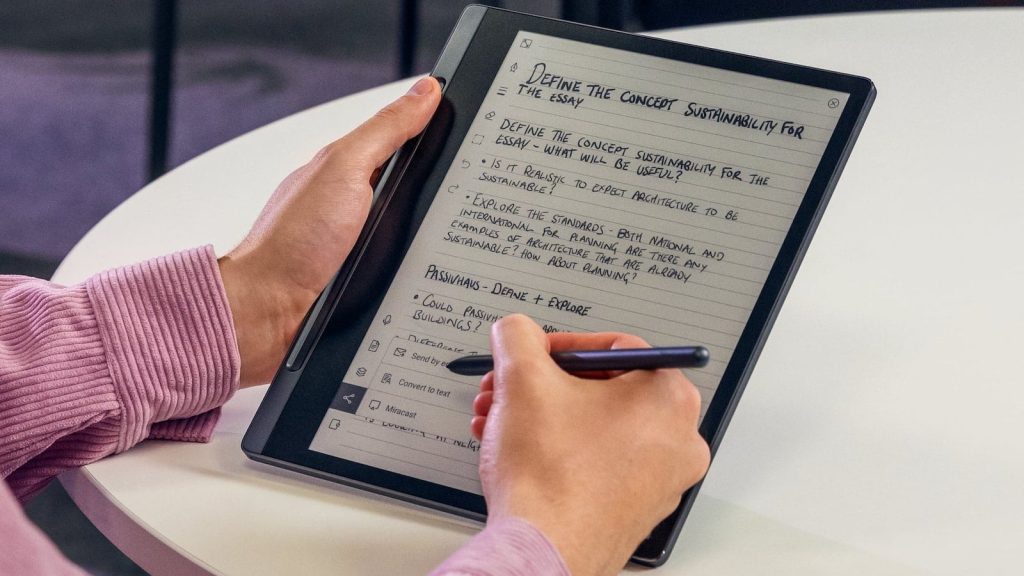What Unpolished Notes Can Teach You
Aiden Foster July 24, 2025
In the world of technology, polished presentations, well-packaged features, and meticulously curated products often steal the spotlight. However, behind the scenes, there’s a growing trend that proves some of the most revolutionary ideas start as unpolished notes. These raw, imperfect thoughts can lay the foundation for the next big thing in tech. Whether it’s a startup’s breakthrough app or a new AI development, some of the best tech innovations began as rough sketches, casual thoughts, or even incomplete prototypes.
In this article, we’ll explore how unpolished notes can teach us valuable lessons about creativity, the tech industry, and the process of innovation itself. We’ll also look at how these notes provide insights into how entrepreneurs, developers, and creators have taken messy ideas and turned them into groundbreaking technology that shapes our world.

The Power of Unpolished Ideas in Tech Innovation
At first glance, a notebook full of scribbled thoughts might seem like chaos. However, these unpolished ideas hold a wealth of potential. Many of the most successful tech companies today grew out of rough ideas written in margins, early-stage prototypes, or even incomplete code. Unpolished notes don’t just represent disorganized thinking; they embody the raw creative potential that leads to breakthroughs.
Tech giants such as Google, Apple, and Microsoft didn’t begin with fully fleshed-out, market-ready products. They started as unrefined concepts that were honed and developed over time. Steve Jobs famously emphasized that some of the greatest innovations start with a rough vision of the future, which is then iterated upon. Without those initial, imperfect steps, these companies wouldn’t have achieved the level of success they have today.
Consider the early days of Google. Larry Page and Sergey Brin, the company’s founders, didn’t initially have a polished business plan. In fact, Google started as a research project while they were PhD students at Stanford. Their initial ideas were rough and messy, yet they fundamentally changed the way we access information. Today, Google is a dominant player in the tech industry, but its roots were humble and unpolished.
The Role of Iteration in Turning Unpolished Notes Into Tech Success
In tech, the concept of iteration is fundamental. Whether you’re coding a new app or designing a website, your first attempt is rarely perfect. But this doesn’t mean the idea is doomed. It’s simply the beginning of a process that involves constant revision and refinement.
This iterative process is reflected in the way tech companies treat their initial ideas. Instead of seeking perfection right from the start, tech innovators embrace the flaws in their early drafts. Facebook, for example, began as “The Facebook,” a simple social networking website limited to Harvard students. Over time, it evolved into the social media behemoth we know today. Its success lies in the ability to improve constantly and adapt to user feedback.
In fact, many successful apps and platforms started with unfinished, unpolished versions. Instagram, originally launched as a location-based check-in app called “Burbn,” struggled to gain traction in its early stages. However, it wasn’t until the founders streamlined the app’s features, focusing solely on photo-sharing, that it exploded in popularity. The process was messy, but it led to the creation of one of the most influential apps in the world.
Why Imperfection Drives Innovation in Tech
One of the greatest strengths of unpolished notes in tech is their capacity to push boundaries. When people work on ideas that are far from perfect, they are forced to think outside the box. Innovation thrives in environments where failure and imperfection are seen as steps toward progress, rather than setbacks.
The concept of “fail fast, fail often” is integral to many tech startups. This mindset encourages developers and entrepreneurs to test ideas quickly, regardless of how imperfect or unrefined those ideas may be. The quicker they fail, the faster they can learn and improve. Unpolished notes, which often contain rough drafts of these “failures,” are invaluable in providing insights into what works and what doesn’t.
The early development of Apple’s iPhone is a great example of how imperfection fosters innovation. Apple’s engineers and designers had to iterate on the original concept, facing countless obstacles in the process. They initially experimented with physical buttons, then tried touch interfaces, each iteration bringing them closer to the smooth, polished device we use today.
From Unpolished Notes to AI Innovation
Another area where unpolished ideas shine is artificial intelligence (AI). Many AI researchers rely on messy data sets and incomplete algorithms to begin their work. The early versions of AI systems, like neural networks, were far from perfect. But as researchers continued to test, adapt, and iterate on their ideas, these systems became more sophisticated and powerful.
OpenAI, the organization behind the development of GPT models (including this one), began with research and rough prototypes that evolved over time. The idea of creating an AI capable of understanding and generating human language started as an ambitious, unpolished concept. But through experimentation, collaboration, and a commitment to continuous improvement, AI has become an essential tool in many industries.
Furthermore, AI’s role in transforming industries like healthcare, finance, and customer service started with unpolished prototypes, early-stage research, and experimental algorithms. By embracing these rough ideas, tech innovators have been able to refine and develop AI tools that now power everything from virtual assistants to complex data analysis.
Lessons Learned from Unpolished Notes
- Creativity thrives in imperfection: The rawness of unpolished notes encourages new ideas and creative solutions. It’s often easier to think freely without the constraints of perfection.
- Iteration is key to success: The process of refining and evolving unpolished ideas is essential in tech. Every prototype, no matter how rough, takes you one step closer to a working solution.
- Embrace failure: Failure is often an essential part of the tech innovation process. It’s through failure that new ideas are born, and unpolished notes are the perfect place to explore those early missteps.
- Collaboration enhances innovation: Many unpolished ideas become successful through collaboration. In the tech world, developers and creators build on each other’s rough ideas to create more sophisticated and effective solutions.
Conclusion: The Importance of Embracing Unpolished Notes in Tech
Unpolished notes have the power to shape the future of technology. They provide a space for creativity, risk-taking, and innovation. By embracing imperfection, tech entrepreneurs and developers can unlock new possibilities and opportunities. Whether it’s a rough sketch, a quick note, or an incomplete idea, unpolished notes hold the keys to the next big breakthrough in the tech world.
In tech, it’s not always the polished final product that counts, but the journey from rough concept to refined innovation. So the next time you come across a messy idea or a scribbled note, remember: it could very well be the foundation of the next game-changing technology.
References
- Ranganathan, M. (2021) ‘The Evolution of Google: From Search Engine to Tech Giant’. Tech Journal, 15(3), pp. 45-59. Available at: https://www.techjournal.com (Accessed: 20 July 2025).
- Brown, L. (2020) ‘The Iterative Process: Why Failure is Key to Tech Innovation’. Innovation Review, Available at: https://www.innovationreview.com (Accessed: 20 July 2025).
- Lee, H. and Park, J. (2019) ‘From Burbn to Instagram: The Role of Iteration in App Development’. Tech Trends Quarterly, 12(2), pp. 88-99. Available at: https://www.techtrendsquarterly.com (Accessed: 20 July 2025).







